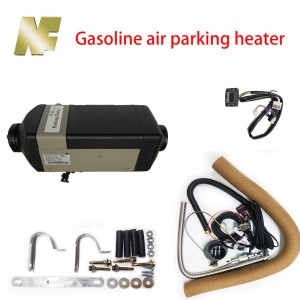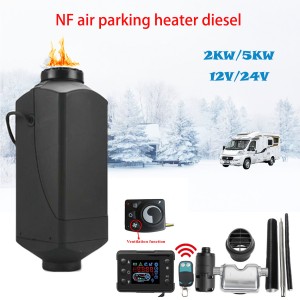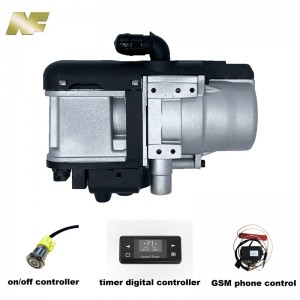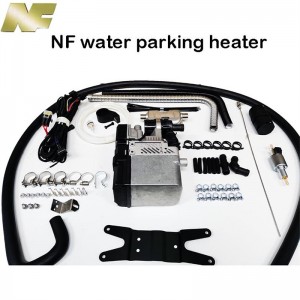Come winter, one of the things that can make our daily commute experience more comfortable and enjoyable is the parking heater. It warmed the interior of our vehicle while parked, kept the windows frost-free, and gave us a comfortable cabin. However, when it comes to choosing the right parking heater, many people find themselves confused between two popular options: air parking heaters and water parking heaters. In this blog, we'll explore the differences and advantages of both types so you can make an informed decision based on your needs and preferences.
1. Air parking heater:
Air parking heaters use forced air to distribute heat throughout the vehicle. They are usually installed in the engine compartment, are compact and relatively easy to install. These heaters draw air from the environment, heat it using diesel or gasoline fuel, and blow it into the cabin to create a warm and cozy atmosphere.
One of the significant advantages of an air parking heater is the ability to quickly warm up the vehicle. They provide instant heat that can raise the temperature in the cabin in a short amount of time, perfect for those who are always in a hurry. Additionally, air parking heaters are known to be very efficient because they use less fuel than other heating options.
Additionally, the air parking heater can be easily connected to the vehicle's fuel system or to a separate fuel tank, allowing for a variety of installation options. They also come with a variety of control options, including timers and remote controls, offering convenience and flexibility to the user.
2. Water parking heater:
Water-type parking heaters work differently from air-type parking heaters. Instead of heating the air, they heat the coolant in the vehicle's engine, which is then circulated into the cabin using the vehicle's existing ventilation system. This allows heat to be evenly distributed throughout the vehicle, providing pleasant and consistent warmth.
One of the main benefits of a water parking heater is the ability to preheat the engine, reducing engine wear and enabling quick starts in cold weather conditions. They ensure the engine is warmed up and ready to go, eliminating potential damage from cold starts. Additionally, water-based parking heaters are generally quieter than air-based parking heaters, providing a quieter cabin environment.
Water parking heaters are generally considered more suitable for larger vehicles, such as trucks and RVs, as they provide an efficient and effective way to evenly heat the cabin space. They usually have a high heat output capability and are suitable for extreme weather conditions.
Choose the right heater :
Now that we've discussed the features and benefits of air and water parking heaters, how do you go about choosing the right one for your vehicle? Consider the following factors:
1. Vehicle size: If you have a small vehicle, an air parking heater may be sufficient. However, for larger vehicles or vehicles with multiple compartments, a parking heater may be a better choice.
2. Heating preference: If you like quick heating and a flexible fuel connection, an air parking heater is a good choice. Conversely, if you value engine warm-up, even heat distribution, and quiet operation, then a water parking heater may be a better fit.
3. Budget: Compared with water-type parking heaters, air-type parking heaters are usually cheaper. Consider your budget before making a decision.
Conclusion:
Investing in a parking heater can greatly enhance your winter driving experience. Now that you have a better understanding of the differences between air and water parking heaters, you can make an informed decision based on your vehicle type, heating preferences, and budget. Stay warm and enjoy winter!




Post time: Jul-27-2023




